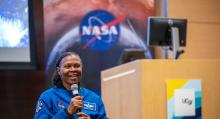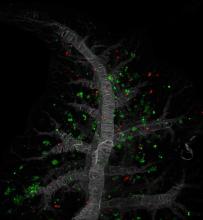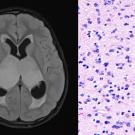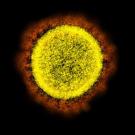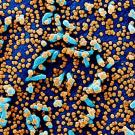News
New UCSF Study Identifies Precision Medicine Therapy for Rare Pediatric Glioma
Brain tumors are the leading cause of cancer mortality in children, several types of which still do not have an optimal therapeutic strategy. Among these are diffuse gliomas, which cannot be cured by surgical resection alone due to the way the tumor cells infiltrate throughout the neighboring brain
CRISPR-Based 'Discovery Engine' for New Cell Therapies to Advance Cancer Treatments
Despite centuries-long efforts to develop cures for cancer, various forms of the disease will kill about 630,000 people in the U.S. in 2020. But hopes are rising for cell therapies – sometimes called “living medicines” – that can boost and adapt the natural cancer-fighting potential of the immune
New CRISPR-Based COVID-19 Test Kit Can Diagnose Infection in Less Than an Hour
Scientists have developed an inexpensive new test that can rapidly diagnose COVID-19 infections, a timely advance that comes as clinicians and public health officials are scrambling to cope with testing backlogs while the number of cases continues to climb. Developed at UC San Francisco and Mammoth
Air Pollution and Smoking May Increase Coronavirus Risks, Worsen Outcomes
Lung damage is the cause of most COVID-19 deaths, and lung damage also is a public health concern for smokers and anybody living under polluted skies. The assault to the lungs in COVID-19 and due to inhaled smoke and chemicals has led researchers to suspect that there is a synergy at work for many
Confronting COVID-19: Donors' Generosity Put to Use at Lightning Speed Across UCSF
As COVID-19 continues to kill thousands of Americans and infect even more, UC San Francisco experts are driven to seek solutions to one of the most significant health challenges affecting the whole world. Recognizing that UCSF is on the front line of the Bay Area’s response to this global pandemic
Unveiling How Coronavirus Hijacks Our Cells to Help Rush New Drugs to Patients
UC San Francisco’s Nevan Krogan, PhD, hasn’t slept much since January, when cases of COVID-19 caused by a novel coronavirus began to spike in China, stoking fears of the ensuing global pandemic that has since affected more than 100 countries. During those fateful weeks, Krogan, director of UCSF’s

